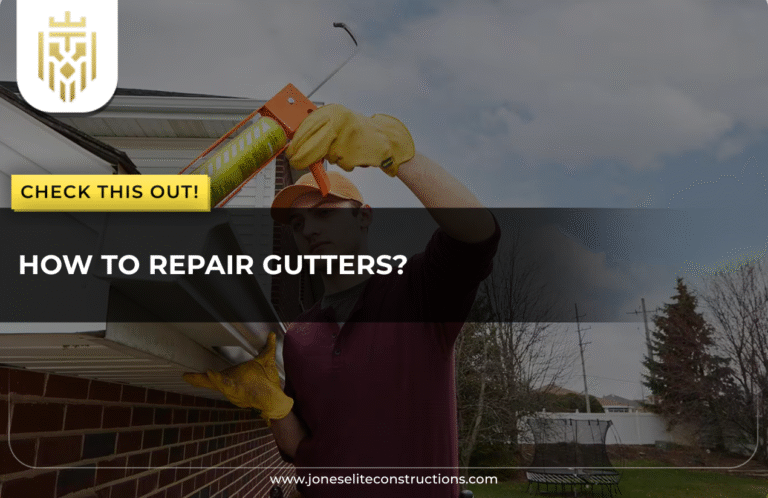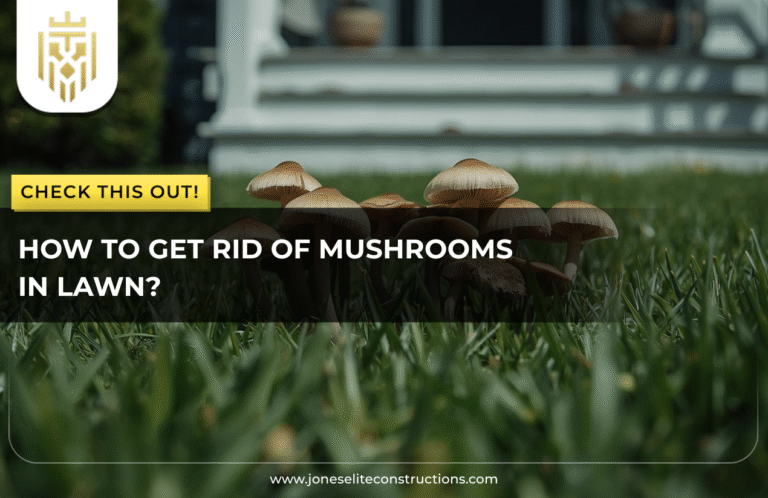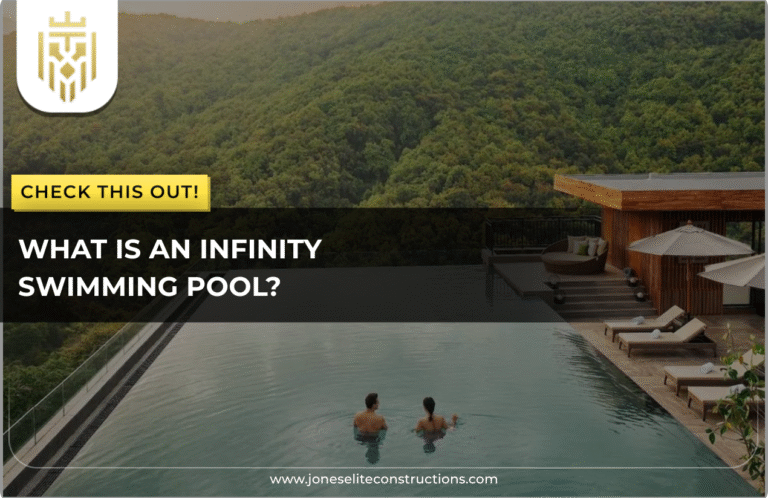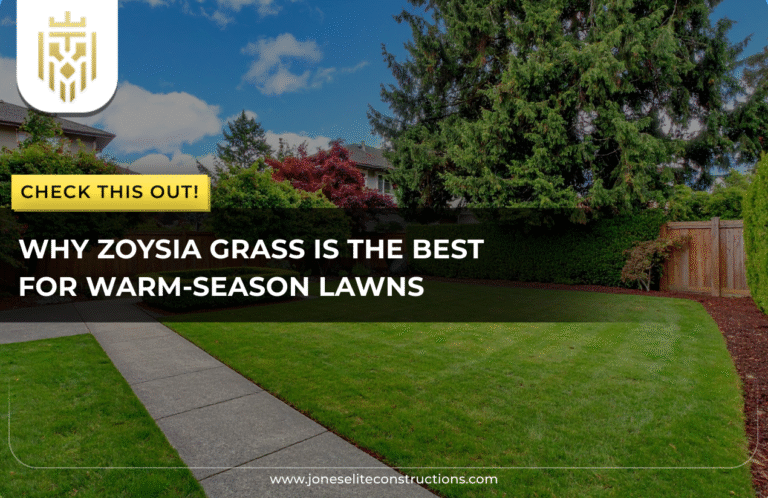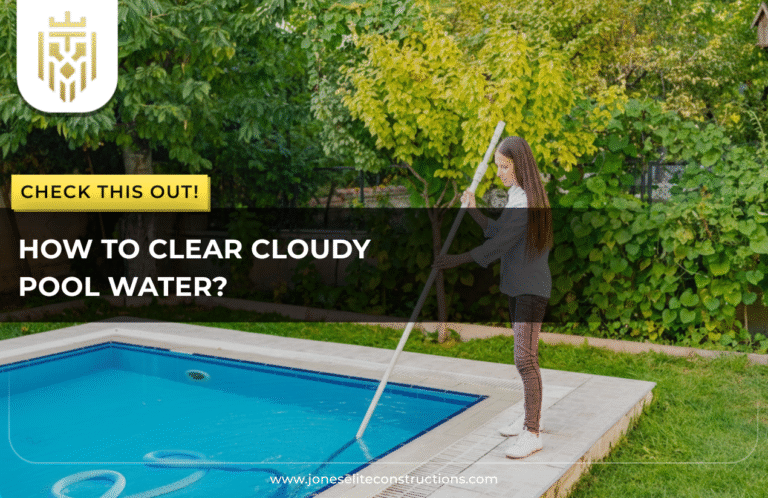Introduction to Swimming Pool Maintenance
A swimming pool needs regular cleaning operations in conjunction with water chemistry balancing and routine examination of equipment to offer a secure swimming environment. Knowing how to maintain a pool includes skimming, vacuuming and filter maintenance. Water clarity in pools together with health protection depends on continuous pool maintenance regardless of whether the pool exists underground or above surface level.
Why Is Pool Maintenance Important?

A proper pool maintenance regimen provides clear water while maintaining safety measures for both equipment and swimming enjoyment. Professional pool maintenance stops algae growth and chemical issues while saving money on repairs which are critical for both health and swimming comfort.
-
Safety and Health
A correctly managed pool maintenance system eliminates microbes and aquatic vegetation while minimising skin problems and contagious waterborne diseases. Maintaining clean safe water requires regular pool cleaning and disinfection procedures which become vital for families and regular users of an above ground pool.
-
Longer Lifespan of Pool and Equipment
Pool maintenance performed regularly preserves the durability of equipment alongside pool surfaces. The combination of cleaning activities with chemical balancing and regular detection of problems helps prevent significant maintenance costs. Pool maintenance procedures that include brushing combined with water testing help secure both in-ground and above ground pools and prolong the expected life of your pump system and filter together with the pool lining.
-
Enhances the Swimming Experience
The quality of swimming experience directly correlates with how well and clean a pool remains. Proper pool maintenance practices result in crystal-clear water and operational equipment control together with algae prevention. No matter the size of your pool whether large or small the best pool maintenance ensures each swim session becomes a peaceful aquatic experience.
-
Water Quality
Water quality stands as the fundamental element required to maintain a pool. A system of measuring pH levels and chlorine content and alkalinity controls swimming water safety and clarity. Regular pool maintenance stops water contamination and eliminates cloudiness in the water. Continued care and chemical and filtration maintenance of even an above ground pool delivers premium water quality along with comfortable swimming conditions.
-
Cost Savings
A consistent pool maintenance schedule will help your swimming pool expenses by preventing expensive equipment failures. Routine pool maintenance stops algae growth while protecting pool equipment and balancing water chemistry which results in lower energy costs. Regular proactive maintenance of filters alongside pump inspections will turn your above ground pool or in-ground system into a less expensive operation.
Swimming Pool Maintenance Checklist

The swimming pool maintenance checklist requires skimming along with brushing followed by vacuuming while testing water chemistry and cleaning filters and inspecting equipment. Regular pool maintenance ensures both cleanliness and equipment durability and provides protected environments for swimming.
-
Skim and Brush Daily
Regular pool maintenance requires debris removal from the water’s surface followed by wall brushing and periodic water measurements. Regular skimming along with brushing surfaces maintains fresh water and prevents unwanted buildup in walls and floors. Running effective pool upkeep requires daily maintenance practices both for above ground pools and other types.
-
Vacuum Weekly
Pool maintenance requires vacuuming as a critical weekly task which should be done right after performing the pool brushing steps. Your regular vacuuming routine eliminates sunken debris along with controlling algae growth. Above ground pools need vacuum cleaning attachments optimised for their design. Learning effective pool maintenance requires performing weekly filter clean-ups and chemical tests which combined provide essential foundation skills.
-
Check and Maintain Water Levels
Good pool maintenance demands constant monitoring of water levels to keep your pump and skimmers working properly. Above ground pool owners must regularly add or remove water to maintain proper water height. The process of effective pool maintenance involves inspecting automated filling equipment while doing regular checks for pool leakages and overflow situations.
-
Test and Balance Water Chemistry
The maintenance of pools requires core chemical testing followed by balanced chemical levels. Pool safety and swimmer comfort depend on testing both pH levels and chlorine and alkalinity concentrations. Regular evaluation and adjustment of chemicals remains an essential weekly pool maintenance practice that serves both above ground pools and traditional pools which results in clear sanitary water.
Ideal Water Chemistry Levels
Chemical levels for pool maintenance must be between pH 7.2–7.8 and total alkalinity 80–120 ppm along with calcium hardness at 180–220 ppm and chlorine levels between 1–3 ppm. Healthy pool water quality and product durability depends on maintaining these required values. Regardless of swimming pool dimensions and pool type, performing regular chemical assessments stands as an essential maintenance practice.
-
Clean the Pool Filter Regularly
Maintaining clean filters enhances your pool system’s ability to circulate water properly while removing impurities. Poor filtration prevents pool maintenance by allowing algae to grow and creates increased strain on the system operation. Regular filter maintenance ensures both the proper functioning and extended lifetime of pool systems regardless of their type and size.
-
Shock the Pool Weekly
Swimming pool maintenance requires shocking as a vital process which removes bacteria and simultaneously oxidises impurities. This process helps achieve clear water while working with weekly routine cleaning operations. Learning how to maintain a pool demands this fundamental process for people who handle pools in hot areas or heavy-use environments where contamination becomes more likely.
-
Maintain the Pool Pump and Circulation System
The management of your pool depends heavily on proper pump operations together with circulation practices. Pool maintenance tasks consist of cleaning baskets in addition to leak inspection and water flow assessment. Organizing proper maintenance routines for pools allows efficient system operation and longer equipment survival across all pool setups from above ground to built-in configurations.
-
Cover Your Pool When Not in Use
Pool covers create three essential benefits for pool owners by reducing evaporation and preventing debris and lowering heating expenses. Above ground pools require covers to stop contamination from happening. Routine pool maintenance requires regular check-ups of chemical levels and skimmer basket cleaning during all periods when the pool is stagnant.
-
Winterize Your Pool (For Cold-Weather)
The proper maintenance of swimming pools requires winterizing during periods of cold weather. The process comprises cleaning steps along with chemical balancing and water level management and proper pool cover application. The protective measures protect both underground and overhead swimming pools against ice-induced destruction.
-
Schedule Annual Professional Inspections
Every year swimming pools need professional inspections as an essential component of reliable maintenance practices. Regular inspections performed by experts help find structural problems then verify equipment and monitor safety regulations. Professional inspections help pool owners maintain safe and legally compliant pools including above ground pool installations throughout the entire year.
FAQs
1) Why is balancing water chemistry so important?
Maintaining proper water chemistry serves threefold functions which include blocking bacterial growth and keeping surfaces in good condition while protecting swimmer safety. The proper balance of equipment operation and water clarity makes water chemistry an essential element in pool maintenance practices.
2) What is the ideal chlorine and pH level for a pool?
A safe chlorine concentration lies at 1–3 ppm with a proper pH range between 7.2–7.8. The established concentration ranges provide essential conditions for pool maintenance which produces both secure clear water and peak performance of other chemical additives.
3) How often should I clean my swimming pool?
Maintaining your pool requires daily skimming and brushing as well as weekly vacuuming and regular filter maintenance. By following this routine you can maintain both the air and water quality of your above ground pool and in-ground pool while also creating an attractive appearance.
4) When should I call a pool maintenance professional?
Always get professional pool maintenance help if your water remains unresolved or your equipment breaks down or before beginning or ending your pool season. Expert guidance both eliminates potential pool maintenance issues that can result in both long-term pool harm and expensive restoration costs.

